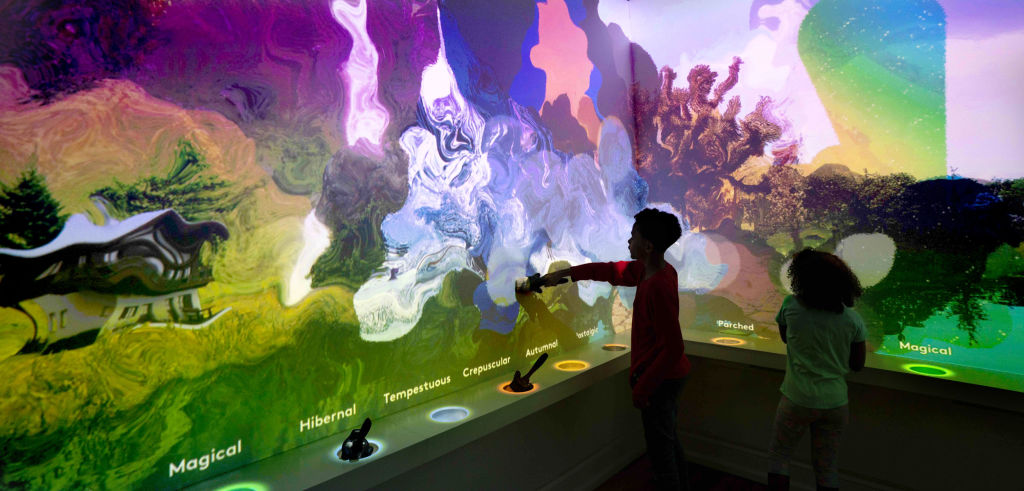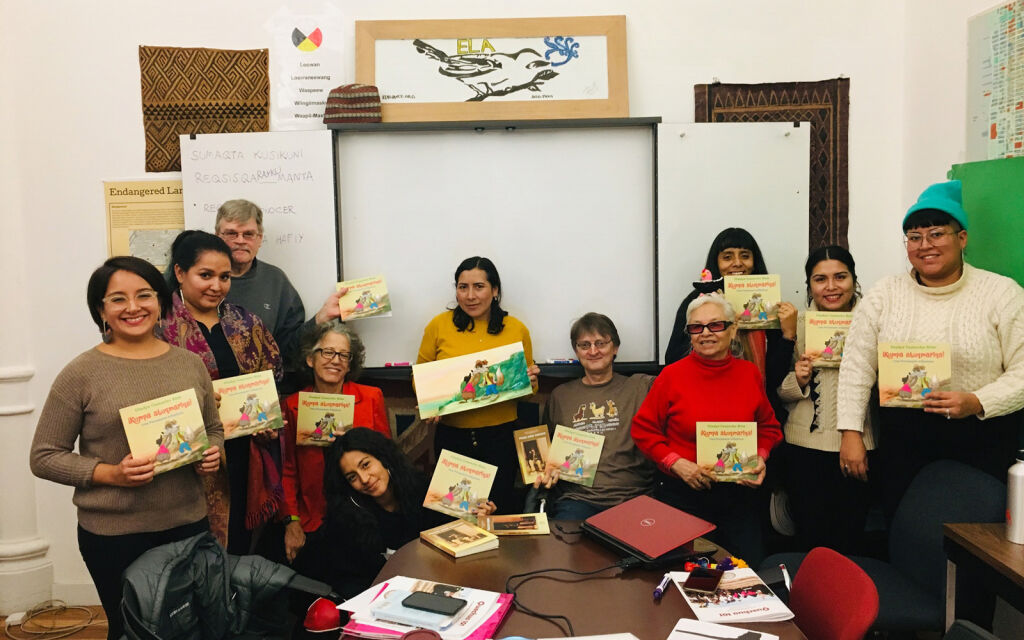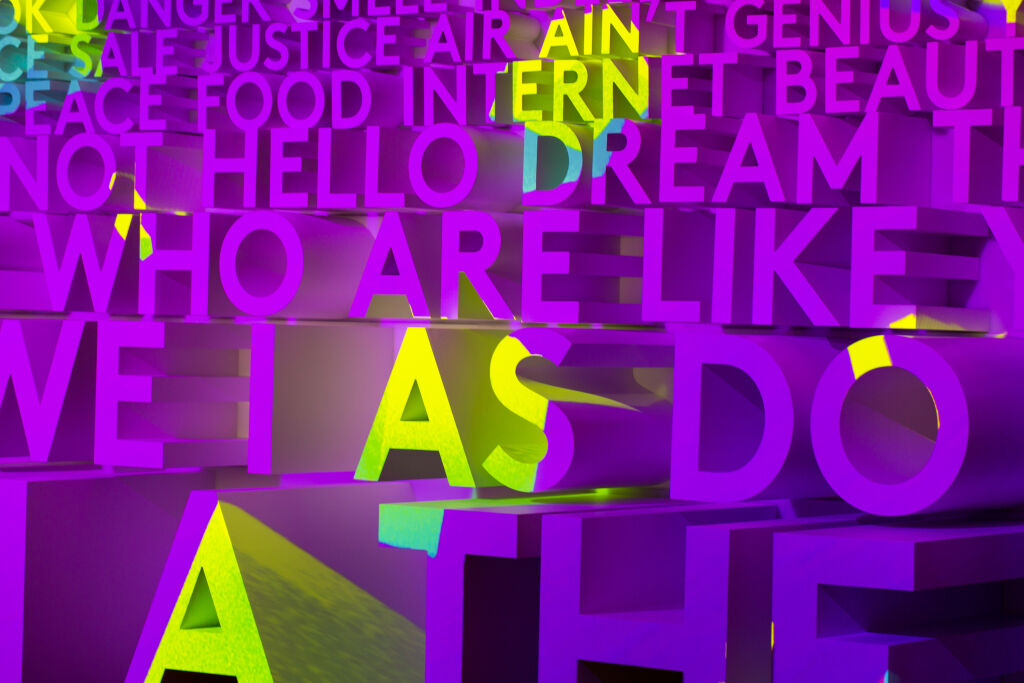Choosing the 2023 Word of the Year: Q&A with Ben Zimmer and Kelly Wright
Since 1990, the American Dialect Society has annually unveiled a Word of the Year — a newly prominent word that reflects significant events, societal shifts, and prevailing themes over the past year. Their previous selections have spanned the gamut, with words highlighting political and social change (like “fake news” in 2017, “(my) pronouns” in 2019, and “Covid” in 2020) as well as interesting linguistic phenomena (like “because” in 2013, singular “they” in 2015, and the suffix “-ussy” in 2022). Their 2023 Word of the Year, “enshittification,” fits a little in both categories, touching on topics like AI and degrading online platforms in addition to being morphologically interesting.
We had the privilege of sitting down with Ben Zimmer and Kelly Wright from the American Dialect Society’s New Words Committee to discuss what went into selecting their 2023 Word of the Year and what they think the future holds for the world of words.
Q: First off, how do you sum up a year with a word?
Kelly: That’s the question that we’re trying to answer. What is this year’s word? What do people feel about it? We can’t reach out to everyone, so part of what we do is crowdsource. We have a survey that’s open almost all year, and our New Words Committee team keeps lists of notable words. So, we try to get as much of a reflection of usage across a year with our New Words Committee folks who look out for new words, in addition to members of the public who submit what they feel and think and have observed.
Ben: And then at our annual meeting where the American Dialect Society meets in conjunction with the Linguistic Society of America, we start off with a nominating session. We consider the nominations that have come in from the public, which Kelly tabulates, and then, using that information, that helps us to fill out a ballot. So, we have lots of different categories, like Most Creative, Most Likely to Succeed in everything from Euphemisms to Digital Words and Political Words, which we fill out with nominees. Then, a much larger group of people votes on the different categories, culminating with the vote where, based on the discussion that we’ve had up to that point, people come up to the microphone and nominate what they think the overall Word of the Year should be. There’s lively discussion followed by a vote. And that’s how we run the process.
Kelly: And sometimes, the winner is a word we haven’t even talked about at all. For example, we have “(derogatory),” which was a nominee from the floor that swept a few categories, including the Most Useful/Most Likely to Succeed category. So, it can be a generative, organic process, which is nice for the data collection.
Q: What distinguishes the American Dialect Society’s Word of the Year process from that of other organizations?
Kelly: We just recently had a conversation with other heads of dictionaries called the That Word Chat, where we all got together and talked about our outcomes. And I think one thing that makes us stand out — we’re not the only one who crowdsources, and we’re not the only one who reports on the words afterwards — is that we don’t have a business to consider. We’re an intellectual organization of volunteers that comes together for the purpose of scholarship. We don’t have a bottom line in that way. And so, I think a lot of these dictionaries are companies, and they look at who is using their product — how are people looking up things on what days and what trends? And that’s something we aren’t poised to observe because we’re a different type of organization. It gives us a different view than they have, and their view is very important and different.
Q: Does time of year matter? Do you see trends where words gain popularity earlier in the year but lose prominence by the end?
Kelly: Yeah, definitely. One of those words this year was “hurriquake,” in that it was a very specific weather phenomenon that happened earlier in the year. So, some things are just lexically interesting, and people nominate them when they’re prominent.
Ben: Another example from the summer was “Barbenheimer,” the day in July when Barbie and Oppenheimer both opened and people made a point of trying to see both on the same day. I did that with my family. It got lots of attention in July but was less prominent (although still remembered fondly) by the time we were voting. And we had some other Barbie related items, as well, with “Kenaissance” winning in the Most Creative category. So, Ken got his due, as well.
Q: Several organizations picked words related to AI for their 2023 Word of the Year. How did the American Dialect Society mark this trend?
Ben: First of all, we had plenty of nominees relating to AI. In fact, based on the data that Kelly collected, we decided to have an ad-hoc category entirely devoted to AI-related terms. We do that from year to year, depending on what people are talking about in a given year. And this year, the discussion was obviously very much centered around generative AI projects like ChatGPT. We had an interesting winner in that category, which was the term “stochastic parrot” — a term that was coined by Emily Bender, a computational linguist, and her coauthors, who wrote an already famous paper from a couple of years ago, which kind of punctured the hype of AI and talked about how these large language models can be mistaken for human intelligence when they aren’t. The term “stochastic parrot” to refer to these models that generate plausible synthetic text without having any understanding has since caught on, especially with all of the discussion about ChatGPT. Emily Bender was one of the assembled linguists who joined us for the vote this year, so she was able to speak about her coinage, which was very cool. “Stochastic parrot” was also in the running for Word of the Year.
Q: How did you pick this year’s word, “enshittification,” and what makes this word so special?
Ben: “Enshittification” won Digital Word of the Year and then ended up sweeping to victory in the end, and I think that this term really captured a rather bleak zeitgeist of the past year. It was coined by Cory Doctorow, although there may be other people who have used that word or similar words in the past, who used the word to describe how our online platforms are getting degraded. Their services and quality seem to be getting worse and not better. And that resonated with a lot of people who might be looking at, for instance, social media platforms and how, because of market forces and other things that Cory Doctorow was interested in analyzing, we see this process he called “enshittification.” Cory Doctorow wrote a blog post in January 2023 that got turned into a Wired article, and we could see pretty quickly that this was going to be a success story — a successful neologism that got picked up by people all over the place because they recognized that it describes something that they have experienced or witnessed. It’s a very memorable word. You hear it, and you won’t forget it. And it’s also applicable to lots of different contexts. Cory Doctorow started with online platforms, but people expanded it to refer to lots of different things that they’ve noticed seem to get worse instead of better. And so, even though it was a somewhat pessimistic Word of the Year, it’s one that resonated with lots of people.
Kelly: It also doesn’t exactly have a competing form out there. People hear it, and they know exactly what it means — “I think I’ve experienced this. I didn’t have a name for this whole thing, but as soon as I heard it, I understood exactly what it belonged to.” And I think that people didn’t need to vary it, which we see happen with some other terms — the sense that it isn’t quite right or isn’t quite representing everyone’s experience. I think that the simplicity of the word speaks to how representative and recognizable it is.
Ben: I would also say that in terms of its morphology, or word structure, “enshittification” is interesting because you have that four-letter word in the middle, which is still rather taboo, surrounded by a prefix and a suffix (“en-” plus “-ification”) that are often used for technical terms. They have a kind of formal register, while the term in the middle is considered racy. There’s a humorous juxtaposition of this taboo word that’s infixed by something that seems more technical or formal. And so, I think that helped, as well, in terms of its uptake.
Q: Can you give us any insight into what 2024 might bring for words?
Kelly: This is a good question because we are often wrong. There are some terms that don’t have a lot of staying power, like “Barbenheimer,” but we are seeing a lot of trends, and trends in lexicalization. As an example, the Australian Macquarie Dictionary picked “cozzie livs” (cost of living increases) for their Word of the Year. We’re seeing a trend where people soften the “hellscape,” and I think that is going to keep happening. And, certainly, AI will have an impact. “Enshittification” may be indirectly related to it as something AI infusing into our platforms creates. So perhaps, with all these new terms (like “prompt engineer” being a job), we’re headed towards fertile ground for new word formation, even if these individual words might not stay.
Ben: Kelly and I both look into various Word of the Year nominees in more detail in the quarterly feature, Among the New Words, published by the journal American Speech, which is the journal of the American Dialect Society. And one thing that we’ve observed is there have been a whole series of playful shortenings of things that are related to more serious things but get treated in a lighthearted way. For example, “menty b” for mental breakdown. There are a whole lot of these types of terms related to the pandemic. People were trying to grapple with the COVID pandemic and came up with lots of playful terms to refer to it. So, that’s definitely a trend that we see with new word formation, and we expect to see more of that — people riffing off something in the news or online and putting their own spin on it by coming up with a playful shortening or some other wordplay to lighten the mood. And I think these days, lightening the mood is often a useful way that we create new words to deal with weighty subjects.
The American Dialect Society, founded in 1889, is dedicated to the study of the English language in North America, and of other languages, or dialects of other languages, influencing it or influenced by it. They hold the distinction of being the first organization to announce a Word of the Year in the English language.



